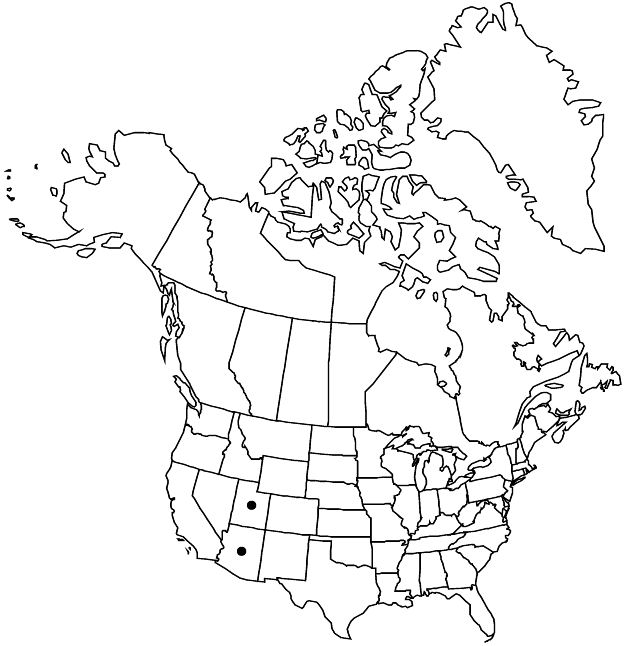Difference between revisions of "Drymocallis arizonica"
in N. L. Britton et al., N. Amer. Fl. 22: 373. 1908.
FNA>Volume Importer |
imported>Volume Importer |
||
| Line 63: | Line 63: | ||
|publication year=1908 | |publication year=1908 | ||
|special status=Endemic | |special status=Endemic | ||
| − | |source xml=https:// | + | |source xml=https://bibilujan@bitbucket.org/aafc-mbb/fna-data-curation.git/src/bb6b7e3a7de7d3b7888a1ad48c7fd8f5c722d8d6/coarse_grained_fna_xml/V9/V9_456.xml |
|subfamily=Rosaceae subfam. Rosoideae | |subfamily=Rosaceae subfam. Rosoideae | ||
|tribe=Rosaceae tribe Potentilleae | |tribe=Rosaceae tribe Potentilleae | ||
Revision as of 00:29, 28 May 2020
Caudex branches short. Stems ± tufted, (1.5–)2.5–6 dm; base 1.5–2.5 mm diam., sparsely to densely septate-glandular. Leaves sparsely to moderately hairy; basal 5–22 cm, leaflet pairs (2–)3–4(–5); terminal leaflet broadly obovate-elliptic, 1–5 × 1–2.5(–4) cm, teeth double, 6–18 per side, apex rounded to acute; cauline 1–4, well developed, leaflet pairs 2–3. Inflorescences 5–30-flowered, not notably leafy, compact, 1/10–1/4(–1/2) of stem, narrow, branch angles 5–25°. Pedicels 1–10 (proximal to 20) mm, sparsely to ± densely short-hairy, predominantly septate-glandular. Flowers opening widely; epicalyx bractlets linear-lanceolate to narrowly elliptic, 2–4(–7) × 1–2 mm; sepals spreading, 4–6(–11) mm, apex ± acute; petals not or scarcely overlapping, spreading, cream-white, ± obovate, 3–6 × 2.5–5 mm, shorter than or equal to sepals; filaments 1–3 mm, anthers 0.7–1 mm; styles thickened, 1 mm. Achenes light brown, 1 mm. 2n = 14.
Phenology: Flowering May–Jul.
Habitat: Streamsides, rocky sites, open forest floors, pine and aspen forests
Elevation: 1800–3200 m
Discussion
Drymocallis arizonica encompasses populations in Arizona north of the Mogollon Rim and in Utah as far north as Garfield and Sevier counties, including the Henry Mountains. It is most distinctive in northern Arizona, where plants commonly have basal leaves with four pairs of lateral leaflets and compact inflorescences. The species intergrades with D. convallaria but is in general shorter and more likely multistemmed. It also shares similarities with D. pseudorupestris but has more developed cauline leaves and a more compact inflorescence. The intergrade zone between all three species and D. deseretica in southwestern Utah is particularly problematic and perhaps indicative of yet additional taxa deserving recognition.
Selected References
None.
